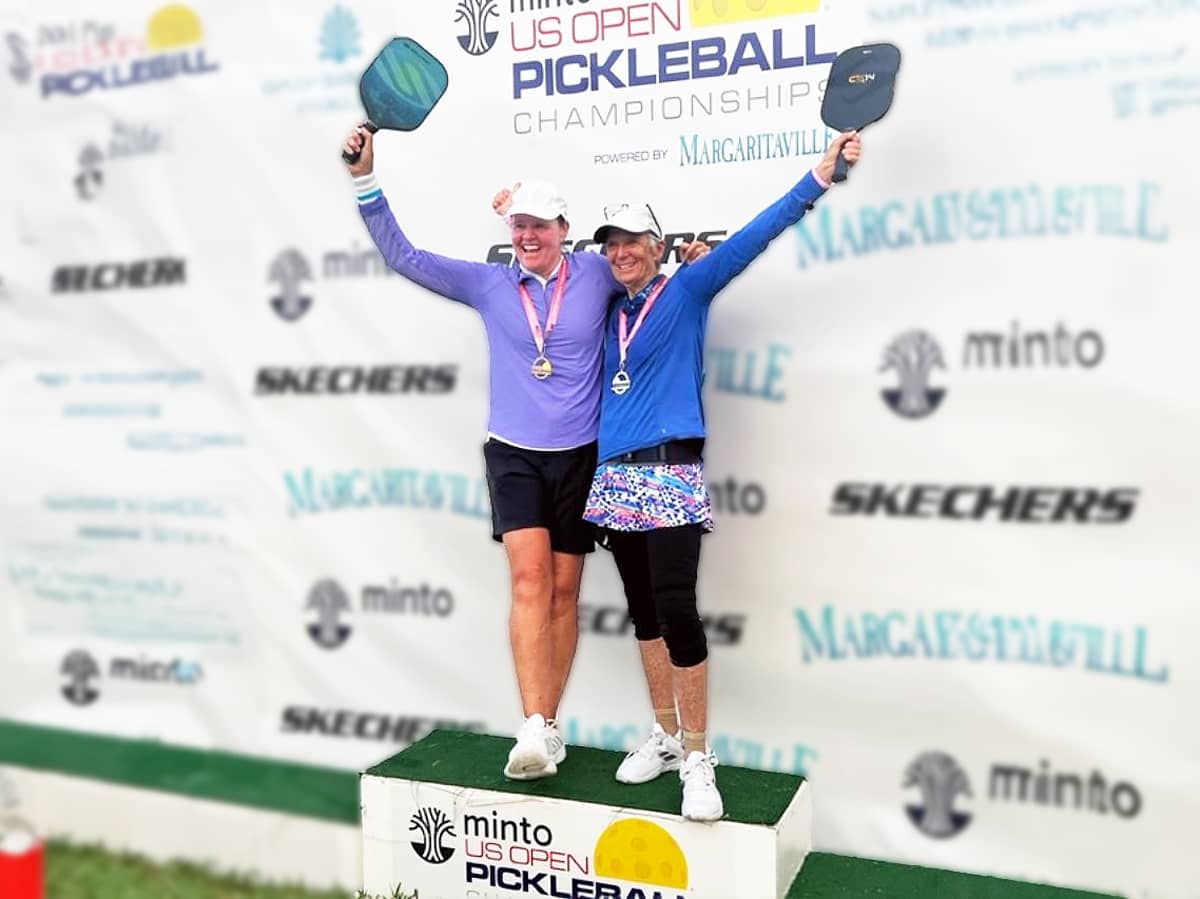Pickleball Continues to Deliver…Injuries
Pickleball may be the fastest-growing sport in the world—and the one with the most rapid referrals to an orthopaedic surgeon’s office. Here’s what we are seeing.

Pictured right: former Stone Clinic nurse and regular national Pickleball champion Bee Kilgore celebrating a doubles Gold Medal at the US Open Pickleball Championship
Pickleball itself is not dangerous; just addictive. It’s super fun and accessible to people of all ages, including the elderly and sedentary—to whom many of the injuries occur. The game is most often played on modified tennis courts, shortening the distance and putting the players close together. The ball is similar to a whiffle ball and the paddles look like enlarged ping pong or racquetball paddles.
Think of Pickleball as a high-torque sport. Torque means twisting while loading all the joints—especially the back, knee, shoulder, and ankle. If we were to design a joint injury sport from scratch, Pickleball would be it.
The game is fast and loud and, more importantly, involves bending, reaching, and overhead hitting. All these ballistic motions lead to tears in tissues not accustomed to these activities. According to one study, the average age of injured people is 61 years old and most had played for less than a year.
The knee injuries are due mainly to the rapid lunging, pivoting, and twisting. The shoulder injuries are due to overhead slams and repetitive shots. The back injuries are due to all of the above. The fact is that people who have not been active in years are inspired to play like they are still in their 20s. And now 20–40-year-olds are joining the Pickleball tsunami. They are playing hard, fast, and furious. Their injuries are no different from those we see from CrossFit, tennis, volleyball, and basketball.
So what can you do? Prepare. All of the classic sports conditioning rules apply here. Stretching, warming up, strengthening, and preparation all count. At every age, the body can be prepared for the sport to come. Mental errors still cause the majority of all sports injuries and Pickleball is no different. The comradery and social nature of the sport make it easy to be distracted. Distraction leads to unfortunate moves and those lead to injuries.
If you or a partner are indeed injured playing Pickleball, treat the injury immediately. The old days of “rest and wait and see” still work for many mild strains, but today we have a range of interventions that are designed to accelerate healing and treat, prevent, and cure arthritis. They work best when applied at the time of injury.
Our goal, as always, is to keep you playing forever—on and off the court.
